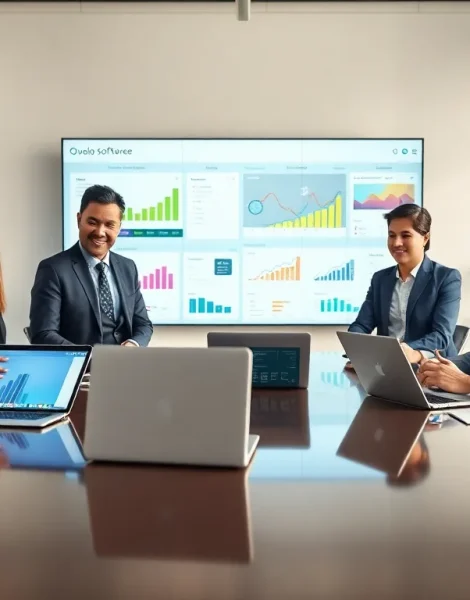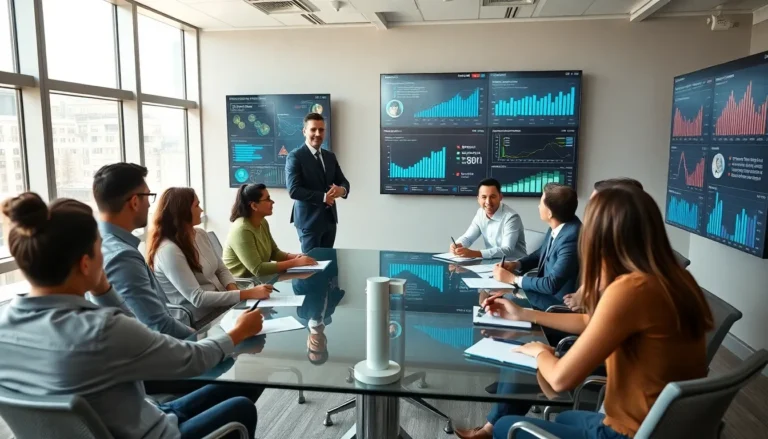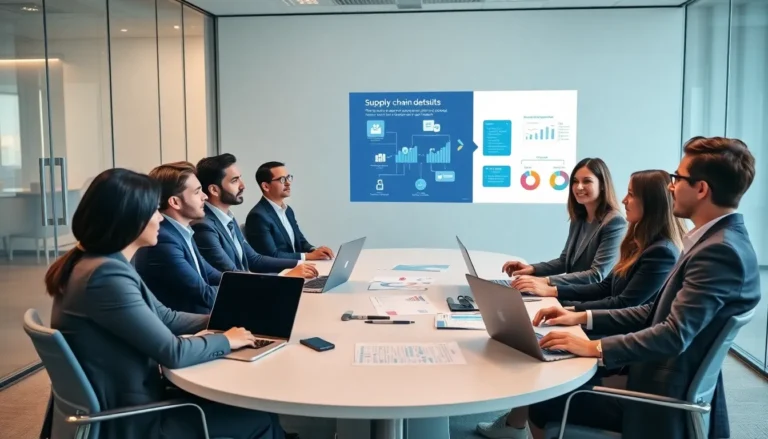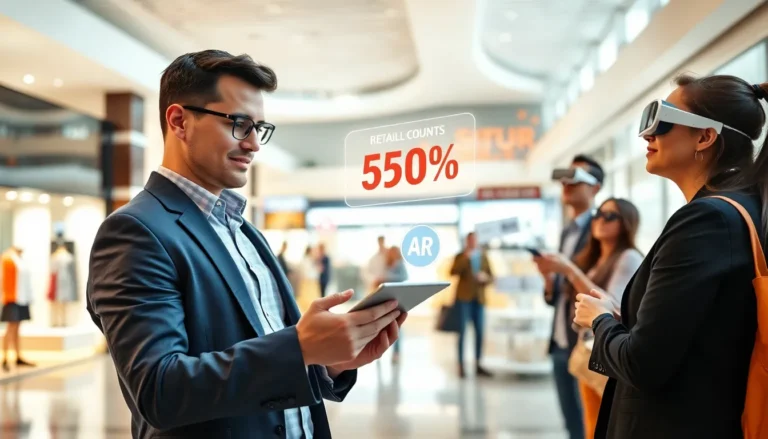In a world where convenience reigns supreme, retail software development isn’t just an option, it’s a game changer. This isn’t another boring corporate spiel: this is about revolutionizing how retailers connect, sell, and thrive. From streamlining operations to enhancing customer experience, the right retail software can be more potent than a double espresso on a Monday morning. Buckle up as we unpack the essentials, turning your retail dreams into reality.
Table of Contents
ToggleUnderstanding Retail Software Development
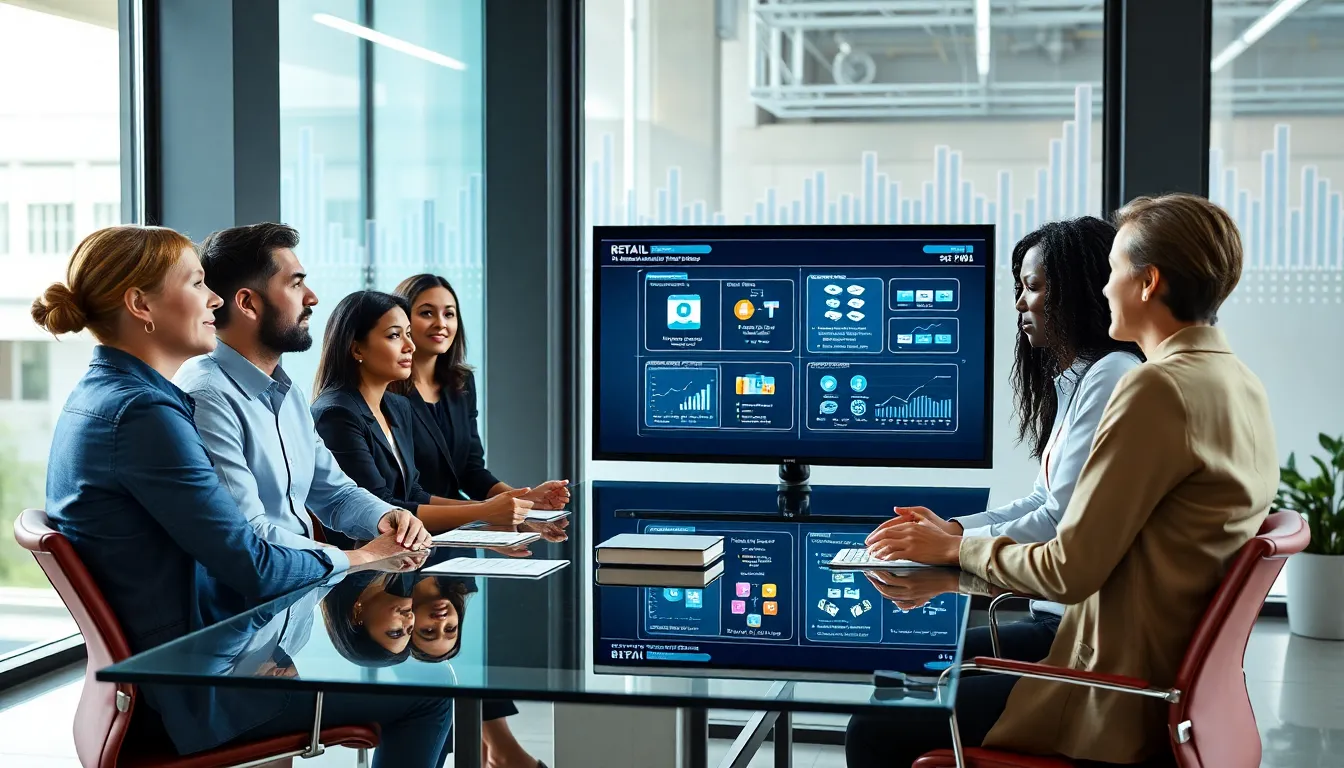
Delving into the world of retail software development reveals a spectrum of solutions tailored for diverse retail challenges. Simply put, retail software refers to digital tools designed specifically for managing operations in the retail sector. This encompasses everything from inventory management and point-of-sale systems to comprehensive customer relationship management. As consumer preferences evolve at lightning speed, these solutions serve as the backbone of a responsive retail strategy, ensuring that businesses not only keep up but also stay ahead.
For instance, imagine a day without a dependable stock management system or POS. Nightmare, right? Retail software development focuses on integrating various functions, creating a seamless experience. Developers work closely with retailers to shape products that are innovative, customer-focused, and scalable. As the market dynamics shift, adaptability becomes crucial, pushing companies to seek out flexible solutions that can accommodate new trends.
Key Features of Retail Software
The charm of retail software lies in its core features that directly address operational hurdles. Here’s a quick look at some essential features:
Inventory Management
With real-time tracking, businesses can optimize stock levels, reducing excess inventory while ensuring popular products are always available.
Customer Relationship Management (CRM)
Collecting customer data and purchasing patterns allows retailers to tailor their marketing strategies. Knowing your customers is no longer a luxury: it’s a necessity.
E-commerce Integration
In today’s digital age, having an e-commerce component isn’t optional. Retail software seamlessly links online and offline sales channels, providing customers with a unified shopping experience.
Analytics and Reporting
Data-driven decision-making influences everything from marketing campaigns to stock purchases. Retail software generates valuable insights, empowering businesses with knowledge.
Point of Sale Systems
These systems redefine customer checkout experiences. Fast, efficient, and user-friendly interfaces enhance satisfaction and streamline operations.
In sum, having a robust set of features is like having a Swiss Army knife in the retail landscape: it ensures firms are equipped to tackle any challenge that comes their way.
Benefits of Custom Retail Software Solutions
When it comes to maximizing efficiency, custom retail software solutions stand out. Off-the-shelf products may offer convenience, but tailored systems provide a competitive edge.
Flexibility
Custom solutions adapt to specific business needs, whether adjusting workflows or integrating unique features. Businesses don’t need to conform: they shape their tools.
Scalability
As retail businesses grow, their software can expand seamlessly. Unlike cookie-cutter solutions, custom software evolves, keeping pace with business growth.
Enhanced User Experience
Bespoke solutions focus on the end-user experience, allowing businesses to create interfaces that are intuitive and aligned with customer expectations.
Cost Efficiency in the Long Run
While upfront costs might be higher, the durability and efficiency of custom solutions often lead to long-term savings. Lower operational hiccups result in fewer overhead costs.
Overall, investing in custom retail software isn’t just spending money: it’s making a smart decision that pays off, turning the operational tides.
Choosing the Right Retail Software Development Company
Navigating the sea of retail software development companies can feel daunting. But, a few guiding principles can steer businesses in the right direction.
Expertise
Look for firms with a solid track record in retail software solutions. Experienced developers deeply understand industry dynamics, ensuring efficient product delivery.
Client Testimonials
Gathering feedback provides invaluable insight. A company with glowing reviews should raise your confidence, reassuring that they can deliver as promised.
Customized Solutions
Find a firm that begins by understanding your needs. They should focus on creating bespoke solutions tailored to specific requirements rather than offering one-size-fits-all products.
Post-Development Support
The relationship shouldn’t end after launch. Opt for a partner that offers ongoing support, maintenance, and updates, ensuring your software evolves with the business.
With due diligence, businesses can find their perfect software development partner, turning their vision into a practical reality.
Case Studies: Successful Retail Software Implementations
Understanding practical applications of retail software can illuminate its impact.
Case Study 1: Fashion Retailer
A boutique clothing store faced stock management issues. After implementing custom retail software, the retailer saw a 30% decrease in out-of-stock instances. Customers noticed enhanced availability, boosting satisfaction.
Case Study 2: Grocery Chain
A regional grocery chain integrated an advanced POS system that allowed for faster checkouts. Post-implementation, the business reported a 25% increase in customer retention rates due to improved shopping experiences.
Case Study 3: Electronics Store
An electronics retailer revamped their inventory management system. With accurate forecasting tools, inventory costs were reduced by 20%, increasing profit margins in a highly competitive market.
These examples illustrate how effective retail software solutions translate into real-world success, highlighting their transformative potential.
Future Trends in Retail Software Development
As technology evolves, retail software must keep pace with emerging trends. Here are some that are on the horizon:
Artificial Intelligence Integration
AI is set to revolutionize customer experiences through personalized shopping suggestions. Businesses that leverage AI will offer tailored experiences, improving customer engagement.
Augmented Reality (AR)
AR can provide immersive experiences for customers. Imagine trying on clothes virtually or visualizing how furniture fits in your home before purchase.
Blockchain for Transparency
This technology might become a game changer in supply chain management, ensuring transparency and reducing fraud, so enhancing consumer trust.
Omnichannel Retailing
Consumers expect seamless transitions between online and offline experiences. Future retail software will need to integrate these channels fluidly.
Each of these trends signifies potential advancements that can further empower retail businesses to adapt to ever-changing consumer demands.

